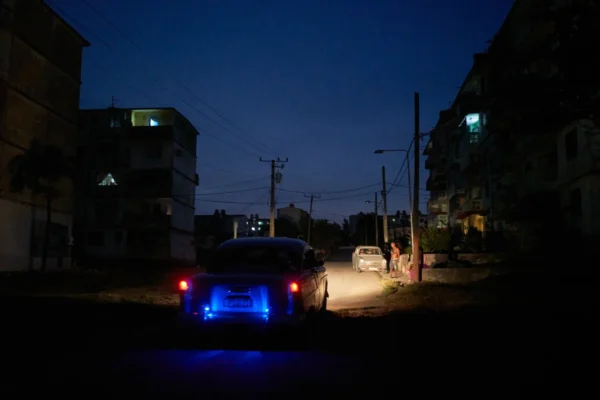Cuba has long had to deal with difficulties in its energy infrastructure, often culminating in blackouts. On October 17th, it faced the same trouble, when half the energy demand (1.64 gigawatts) went offline during peak hours. This foreshadowed the next morning’s fate, when the main power plant – Antonio Guiteras – shut down, covering the entire island in darkness.
The night before the total blackout, the Cuban government announced that schools would be closed and that most state workers would stay home to preserve energy. It was too little too late as it did not change the outcome. The president, Miguel Diaz-Canel vowed absolute dedication to resolving the issue, promising there “won’t be any rest” until the power returned. The Prime Minister blamed the outage on the nation’s deteriorating infrastructure, fuel shortages, and rising demand among the population. The increased demand comes at a troubling time when the supply has significantly decreased as Venezuela, Russia, and Mexico have all cut their shipments to Havana. Fuel imports from Venezuela decreased from 80,000 barrels per day in 2020 to 55,000 in 2023, mainly attributed to inefficiencies in refineries, according to Reuters.
This blackout is considered to be the worst since Hurricane Ian caused one in 2022 when the damage was so severe that the Cuban government needed days to fix the power installations throughout the country. Locals expressed extreme disappointment, with one resident notably claiming it felt like “the bottom of the barrel.” Others noted how the issue affects senior citizens, the group most vulnerable to such events.

Shortage of food and supplies at supermarkets due to the power outage, source: CNN.
On the 19th, 500 megawatts were restored to the power grid but shortly after fell back down to 370. To put it into perspective, Cuba usually needs around 3 gigawatts to operate normally so its power was at 12.3% capacity even the day after the blackout occurred.
The government has long blamed the embargo imposed by the United States for its economic shortcomings and directly ties this to its infrastructural issues. However, experts have pinned the majority of the faults on Cuba’s inaction in transitioning toward solar energy. Dan Whittle, the associate vice president of the resilient Caribbean practice at the Environmental Defense Fund suggested that “if you had extensive buildout of solar, solar farms, residential solar and storage, for the most part, you could avoid the problems they have.”
The nation remains focused on petroleum fuels as the main source of energy, despite committing to increase its reliance on solar energy from 24% to 37% in the 2015 Paris Agreement. Hopes for more fruitful progress grew when the US enabled investment in Cuban private companies two years ago. Nevertheless, the Cuban government has not issued the necessary regulations for the money to reach the country’s private sector. It is therefore little surprise that from 2012 to 2022, Cuba’s reliance on renewable energy sources only increased from 3.8% to 5% while fossil fuels remained at around 95%.
China, one of Cuba’s main trading partners, produces four-fifths of the world’s solar panels and has committed to their adoption on the island. In March, an agreement was reached that involved the construction of 92 solar farms that would provide more than 2000 megawatts of energy. Three months later, China donated three solar parks that were expected to add 1000 more. However, this has not been a success, as that expected solar energy buildup has not yet been crystallized, primarily attributed to Havana’s idleness.

Car lights stand out in the complete darkness of the city, source: Bloomberg.
Concrete and effective action should be taken by the Cuban government to turn blackouts into a problem of the past. Steps are being taken, and it seems that solar energy is finally starting to be taken seriously. Lidice Vaillant, head of the Photovoltaic Research Laboratory at the University of Havana has estimated that the installation of solar panels will increase fivefold over the next decade. Should such a trend continue, Cubans may finally see a brighter future.
Featured image: Citizens trying to cook amidst the blackout, source: CTV News.




